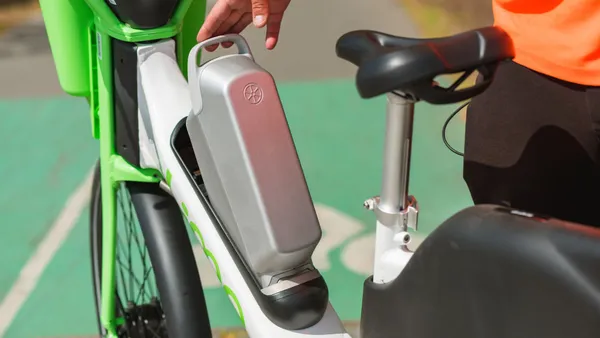Dive Brief:
- Plastics Industry Association has released its latest market watch report, in partnership with the Consumer Technology Association, entitled "Watching: Consumer Technology" to coincide with the recent CES 2017 event in Las Vegas. The report highlighted plastics' role in new technology such as drones and wearables, as well as its growing use in smartphones, tablets, computers and televisions.
- According to the report, one laptop could have up to a dozen different types of plastic and the broader e-scrap category contains at least 60 elements from the periodic table.
- Companies such as Dell and Samsung were all noted in the report for their use of recycled plastics and other parts. These companies were also among many other participants recognized at CES for their work in the Environmental Protection Agency's Sustainable Materials Management Electronics Challenge.
Dive Insight:
The Plastics Industry Association report recognized the environmental issues involved with safe e-waste management, and noted the Basel Action Network's call for limiting exports, but focused more on positive views. According to the report, 80% of the e-waste collected in the U.S. (by weight) is recycled, refurbished or reused domestically and 17.2% is exported.
The progress of CTA's eCycling Leadership Initiative, which collected 700 million pounds of consumer electronics in 2015, was cited as an example of a successful domestic program. The responsibility of brands to fund or facilitate local collection varies from state to state, though many have at least been working with local stores on take-back programs. The report also covered ongoing work to design more products for recycling but didn't delve into detail on the right to repair debate.
According to the Institute of Scrap Recycling Industries (ISRI), the e-scrap market has grown to more than $20 billion and involved more than 4.4 million tons of material in 2011. Much of this has been fueled by the ongoing cycle of new products, some of which the report says "have horizons on their usage and can be retired from first use in as little as 24 months."
ISRI released a "right to reuse" policy last year advocating for manufacturers to provide more access to recyclers interested in refurbishing these products but the concept hasn't moved forward. This type of design, which doesn't allow for easy repair, is what led to Samsung's Galaxy Note 7 recall fiasco and has also been raised as a concern for Apple's new iPhone 7. Using more recycled content in products is positive, but some would say that until brands and associations are willing to take that a step further, it may not be enough to manage the country's growing piles of e-waste.














